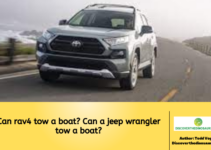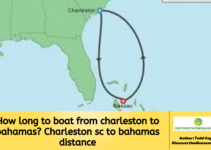It’s important for both boaters and captains to be aware of the procedures that need to be followed in order to avoid a collision. Inexperienced boaters can easily cause a dangerous situation by not following the correct safety procedures, so it’s essential that everyone involved is familiar with them.
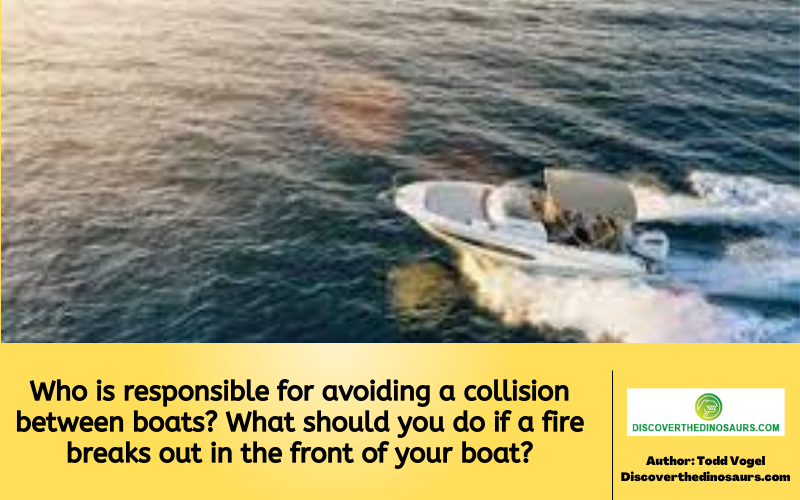
Who is responsible for avoiding a collision between boats? What should you do if a fire breaks out in the front of your boat?
Captains also have a responsibility to keep their vessel clear of other boats, and should take appropriate action if they see someone else acting recklessly. By knowing and following the guidelines for safe boating, we can all help make our waterways safer for everyone.
With only 5 minutes, Todd Vogel will answer the question “Who is responsible for avoiding a collision between boats? What should you do if a fire breaks out in the front of your boat?” and more information. Let’s find out.
What Causes Boat Collisions in the First Place?
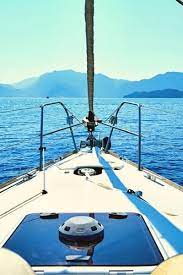
What Causes Boat Collisions in the First Place?
The U.S. Coast Guard reports that there are, on average, 4,158 recreational boating accidents each year in the United States, resulting in 658 deaths, 3,313 injuries and approximately $42 million in property damage.
Boat collisions can occur for a variety of reasons, but some of the most common include:
Operator inattention or inexperience – This is the leading cause of boat collisions and usually occurs when the operator is not paying attention to their surroundings, is not familiar with the area they are boating in, or is under the influence of drugs or alcohol.
Reckless operation – Reckless operation often results in collisions because the operator is not following safe boating rules and regulations, and is not operating their vessel in a safe or responsible manner.
Excessive speed – Speed greatly increases the likelihood of a collision because it gives the operator less time to react to hazards in their path. It also makes it more difficult for other vessels to avoid them.
Improper lookout – All boat operators are required to maintain a proper lookout at all times. This means scanning the waters around them for potential hazards and keeping an eye out for other boats, swimmers, and obstacles.
Navigational errors – Navigational errors are another common cause of boat collisions and usually occur when the operator does not know where they are going or misjudges the distance between their boat and another object.
Bad weather – Poor weather conditions, such as strong winds and heavy rain, can make it difficult for boaters to see hazards in their path, increasing the risk of collisions.
If you want to help reduce the number of boat collisions on our waterways, there are a few things you can do. For starters, always obey all speed limits and other safe boating rules while out on the water.
Additionally, avoid drinking and driving or operating your boat under the influence of drugs or alcohol. And finally, pay close attention to your surroundings at all times and be sure to keep an eye out for other boats and obstacles in the area. By doing so, you can help reduce your chances of being involved in a boating accident.
In the state of Florida, who is responsible for preventing a collision between two boats?
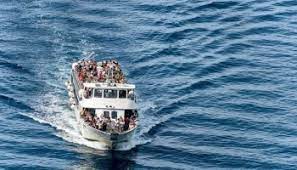
In the state of Florida, who is responsible for preventing a collision between two boats?
In Florida, the responsibility for preventing collisions between boats lies primarily with the operators of each vessel. All boaters are required to maintain a proper lookout at all times and follow safe boating rules and regulations, such as obeying speed limits and avoiding reckless or negligent behavior on the water.
Additionally, weather conditions can play a role in boat collisions, as strong winds or heavy rain can limit visibility and make it more difficult for boaters to react quickly to hazards in their path.
As a result, boaters should always be aware of changing weather conditions when they are on the water, and take appropriate action to avoid accidents if necessary. Other factors that may contribute to boat collisions include navigational errors, such as misjudging distances or failing to properly identify hazards in the area.
By taking steps to avoid these and other potential causes of boat accidents, you can help keep our waterways safe for everyone.
What should a boat operator do in order to avoid colliding with another vessel?
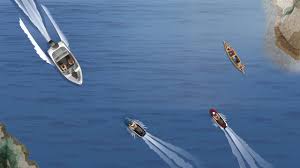
What should a boat operator do in order to avoid colliding with another vessel?
To avoid colliding with another vessel, a boat operator should always maintain a proper lookout and be familiar with the waterways they are navigating. This means scanning their surroundings for potential hazards and obstacles, staying alert at all times, and keeping an eye out for other boats, swimmers, or other vessels.
Additionally, operators should follow safe boating rules and regulations such as obeying speed limits, avoiding reckless behavior on the water, and steering clear of impaired or intoxicated driving.
When necessary, they should also adjust their speed or course to minimize the risk of a collision. By taking these precautions, boat operators can help prevent accidents on our waterways and keep all boaters safe while enjoying the water.
Which of the following is responsible for avoiding a collision between two boats on Quizlet: who is responsible for avoiding a collision between two boats?
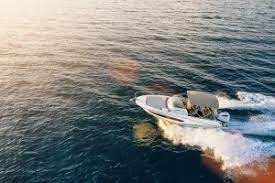
Which of the following is responsible for avoiding a collision between two boats on Quizlet: who is responsible for avoiding a collision between two boats?
The responsibility for avoiding a collision between two boats lies primarily with the operators of each vessel. All boaters are required to maintain a proper lookout at all times and follow safe boating rules and regulations, such as obeying speed limits and avoiding reckless or negligent behavior on the water.
Additionally, weather conditions can play a role in boat collisions, as strong winds or heavy rain can limit visibility and make it more difficult for boaters to react quickly to hazards in their path.
As a result, boaters should always be aware of changing weather conditions when they are on the water, and take appropriate action to avoid accidents if necessary.
Other factors that may contribute to boat collisions include navigational errors, such as misjudging distances or failing to properly identify hazards in the area. By taking steps to avoid these and other potential causes of boat accidents, boaters can help keep our waterways safe for everyone.
What is your primary responsibility when there are other boats in the vicinity of your boat?
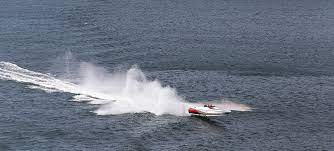
What is your primary responsibility when there are other boats in the vicinity of your boat?
As a boat operator, your primary responsibility when navigating in the presence of other boats is to maintain a proper lookout at all times and take steps to avoid collisions.
This includes scanning the surroundings for potential hazards and obstacles, staying alert at all times, and keeping an eye out for other boats or vessels. You should also follow safe boating rules and regulations such as obeying speed limits, avoiding reckless behavior on the water, and steering clear of impaired or intoxicated driving.
When necessary, you may need to adjust your speed or course in order to minimize the risk of a collision with another boat. By taking these precautions, you can help keep our waterways safe for everyone and ensure the safety of other boaters in your vicinity.
Who is responsible for ensuring that two boats do not collide with one another?
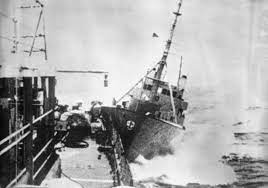
Who is responsible for ensuring that two boats do not collide with one another?
The helmsman of each vessel is responsible for avoiding a collision. The International Regulations for Preventing Collisions at Sea (COLREGs) state that, “Every vessel shall proceed at a safe speed so that she can take proper and effective action to avoid collision and be stopped within a distance appropriate to the prevailing circumstances and conditions.”
The COLREGs also establish rules of the road which vessels must follow in order to avoid collisions. For example, vessels must keep out of the way of larger vessels, give way to vessels on their starboard side, and not cross the path of approaching vessels.
If two boats are on a collision course, it is the duty of both helmsmen to take evasive action to avoid a collision. If one vessel does not take evasive action, the other vessel may be forced to take action which could result in damage or injury.
In summary, it is the responsibility of both helmsmen to avoid a collision between boats by maintaining a safe speed and following the rules of the road.
The Ship’s Stern Advice for Staying Clear of Collisions on the Water
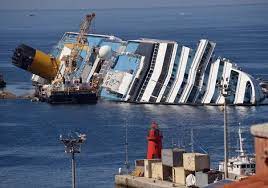
The Ship’s Stern Advice for Staying Clear of Collisions on the Water
Accidents on the water can result in death or serious injury
All water users should be familiar with the basic rules of boating safety. For more information, please visit Transport Canada’s website at: http://www.tc.gc.ca/eng/marinesafety/debs-obs-menu-490.htm.
The Law Regarding Personal Floatation Devices (PFDs)
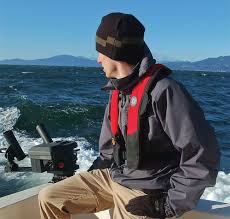
The Law Regarding Personal Floatation Devices (PFDs)
In Canada, the Boating Safety Regulations stipulate that every person on board a pleasure craft must wear a properly fitted and fastened personal floatation device (PFD) or lifejacket of an appropriate size unless the person is:
•Inside a cabin or fully enclosed shelter
•Engaged in an activity for which a PFD would interfere
•Below deck in an area where there is no danger of falling overboard
•A child under the age of 16 who is not operating the vessel and who is wearing a properly fitted and fastened lifejacket
A Guide to the Water’s Etiquette
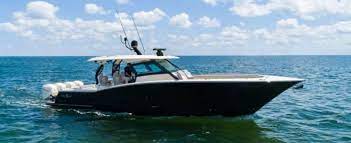
A Guide to the Water’s Etiquette
Just as there is etiquette on land, there are also unwritten rules that should be followed when out on the water. These rules help to ensure the safety and enjoyment of all users.
Some general tips include:
•Respecting the rights of other users
•Yielding the right of way
•Avoiding high-speed operation in congested areas
•Giving adequate distance when passing other vessels, swimmers, divers, etc.
•Anchoring in designated areas only
For more information on courtesy on the water, please consult the Canadian Yachting Association’s Code of Conduct at: http://www.cya.ca/documents/CODE_OF_CONDUCT.pdf.
Terminology
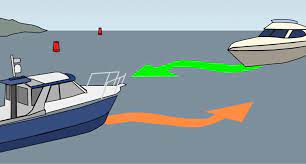
Terminology
Understanding what each of these phrases means is crucial, as it underpins the majority of the regulations that govern the game. The following are some of them:
The leading edge or front of the boat.
It’s the back of the boat, or the stern.
Left side of the boat is referred to as port.
Right side of the boat is referred to as starboard.
The term “hull” refers to the body of the boat, whereas “gunwale” refers to the upper rim of the vessel. The laws governing boats address particular aspects. For safety reasons, passengers are not allowed to sit on the gunwale while the ship is moving because doing so would put them in danger of falling overboard. The others are related to navigation.
Guidelines for Travel
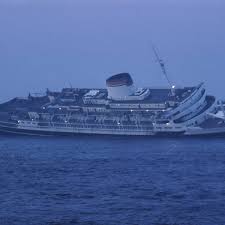
Guidelines for Travel
There are a few things you can do to avoid collisions while boating. First, be aware of your surroundings and the other boats in the area. Watch for signs that another boat is getting too close, such as the boat’s wake or its running lights. If you see another boat coming toward you, slow down and give it plenty of room to pass.
Second, follow the rules of the road. These rules are designed to help keep traffic moving safely and prevent accidents. For example, when two boats are approaching each other head-on, they should each veer to their right to avoid a collision.
Third, use common sense and good judgment. If a situation doesn’t feel right, trust your instincts and take action to avoid a collision.
Finally, remember that alcohol and drugs can impair your ability to make good decisions and react quickly in an emergency. If you’re going to drink, don’t drive. And if you’re driving, don’t drink.
By following these guidelines, you can help keep yourself and others safe on the water.
The Reasoning Behind the Laws
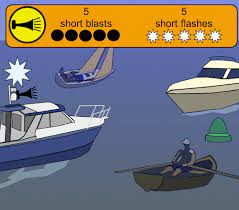
The Reasoning Behind the Laws
Have you ever wondered why the laws governing boats are the way they are? If so, you’re not alone. Many people have questions about the rules of the road and how they apply to different situations.
The answer is simple: the laws are designed to prevent accidents. By following the rules, you can help keep yourself and others safe on the water.
Here are some of the most common questions people have about boat safety:
On the Water, Putting Safety First
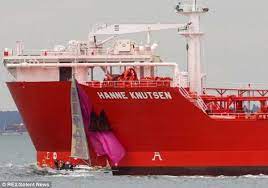
On the Water, Putting Safety First
As you head out on the water this summer, remember to put safety first. There are a few things you can do to help avoid accidents and keep yourself and others safe.
First, be aware of your surroundings and the other boats in the area. Watch for signs that another boat is getting too close, such as the boat’s wake or its running lights. If you see another boat coming toward you, slow down and give it plenty of room to pass.
Second, follow the rules of the road. These rules are designed to help keep traffic moving safely and prevent accidents. For example, when two boats are approaching each other head-on, they should each veer to their right to avoid a collision.
F.A.Q about “who is responsible for avoiding a collision between boats”
The answer to the quizlet is: Who is responsible for preventing a collision between two boats?
The question arises as to who is responsible for avoiding a collision when two vessels operate in the same general area. The owners and operators of both ships.
In the state of Florida, who is responsible for preventing a collision between two boats?
It is (a) the operator of both boats who has the answer to the question. Every person in charge of a boat is responsible for ensuring that there are no collisions.
Boat operators are required to consider all dangers and collision risks when operating their vessels, which may entail breaking navigational rules if evasive action is required.
Who is in charge of avoiding a collision in the first place?
Collisions can result in severe property damage, bodily injury, and even death. It is the responsibility of every vessel operator to avoid a collision with another vessel. Boat and PWC operators should do the following to avoid a collision: Obey all applicable navigational rules.
What actions should you take in order to avoid colliding with another boat?
Avoiding Collisions
- Follow the navigational rules at all times.
- Keep an eye out for navigational aids.
- Keep a close eye on things and designate one person to be the “lookout.”
- Preserve a safe speed, especially when driving in congested traffic or late at night.
- Before taking any action, make sure you have looked in every direction.
Quizlet: Who is responsible for maintaining a proper lookout while boating?
Every operator is responsible for maintaining a proper lookout at all times, using both sight and hearing. Keep an eye out for other vessels, radio communications, navigational hazards, and anyone else who might be participating in water activities.
Conclusion
The best way to avoid a collision between boats is by following the basic rules of navigation and being aware of other vessels in the area. Both boat operators and passengers should be familiar with these safety tips in order to keep everyone safe on the water.
If you are ever involved in a boating accident, it is important to contact an experienced maritime lawyer right away. At Barket Marion Webster, we have over 50 years of experience helping victims get the compensation they deserve after an accident. Contact us today for a free consultation.
This discoverthedinosaurs.com post will show the information about “who is responsible for avoiding a collision between boats”
- what should you do if a fire breaks out in the front of your boat?
- when you see a red flag or buoy with a white diagonal stripe (divers-down symbol), you must:
- boat ed answers
- the following are ways to avoid having a collision

